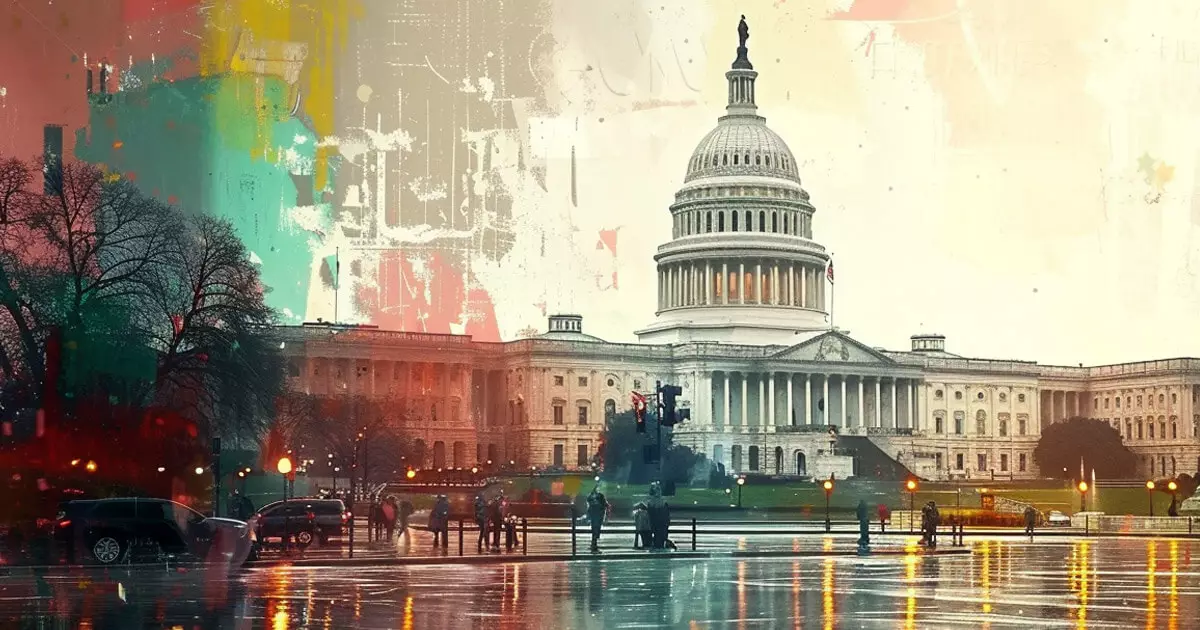The ongoing evolution of regulatory frameworks surrounding cryptocurrency has captured the attention of various stakeholders, including lawmakers, industry leaders, and financial institutions. Recent statements from Representative French Hill have indicated a potential shift in scrutiny towards the actions of regulators who may be attempting to sideline cryptocurrency businesses from mainstream banking services. This could have significant ramifications for the burgeoning crypto industry and its ability to thrive within the broader financial ecosystem.
During a crucial hearing on December 3, which examined advancements in financial technology, Hill expressed profound concerns over the alleged pressures imposed on banks to sever ties with legal crypto enterprises. His remarks were particularly influenced by comments made by Marc Andreessen, co-founder of the venture capital firm a16z, during a recent appearance on “The Joe Rogan Experience.” Andreessen claimed that federal authorities were confronting banks with implicit threats regarding their dealings with the crypto sector, coining the situation as “Operation Choke Point 2.0.” This term echoes the original Operation Choke Point initiative from 2013, aimed at restricting financial services to businesses deemed high-risk, a move which had drawn considerable controversy in the past.
The hearing witnessed influential voices from the crypto industry, including executives from Stellar Development Foundation and Anchorage Digital, who shared their stark experiences regarding banking relationships. Denelle Dixon, CEO of Stellar, painted a grim picture, mentioning that her organization had to approach ten different banks to secure necessary banking services, only to face rejection without any reason provided. Such anecdotes elucidate the potentially systemic barriers that crypto businesses might be encountering within what is ostensibly a free and competitive banking environment.
The ramifications of these testimonies extend beyond individual companies; they raise larger questions about equitable access to essential financial services for legal businesses across the country. As Hill stated emphatically, it’s vital that these businesses are not obstructed from meaningful banking services due to arbitrary regulatory pressures.
As the House Financial Services Committee gears up for leadership changes with current chair Patrick McHenry’s retirement, the possibilities for a newfound political approach towards crypto regulations are tantalizingly on the horizon. Pro-crypto lawmakers like Hill are vying for leadership positions that could significantly impact the legislative landscape of the crypto industry. While some anticipate a loosening of regulatory encumbrances, there remains a cautious optimism surrounding specific oversight measures intended to protect investors and consumers alike.
The discussion surrounding stablecoin regulation further complicates the narrative, as lawmakers grapple with the extent of oversight that should be delegated to state regulators versus federal authorities. Hill remains optimistic about the progress that can be made despite legislative constraints, suggesting that a consensus on cryptocurrency norms may be within reach.
Concurrently, Rep. Maxine Waters, a key figure in promoting bipartisan dialogue around stablecoin frameworks, acknowledged the challenges posed by a packed legislative agenda. Her collaboration with McHenry on stabilizing crypto regulations reflects a broader push towards creating a framework that accommodates innovation while also safeguarding financial stability.
With an incoming administration pledging to dismantle restrictive regulatory practices reminiscent of Operation Choke Point, we may be on the cusp of a transformative period for the cryptocurrency industry. Lawmakers, like Hill, are prepared to advocate for transparent access to financial services that adhere to a principle of fairness for all legal businesses.
As the dialogue continues, there is a distinct possibility that the intersection of politics, finance, and technology will redefine the operational landscape of crypto enterprises in the United States. This evolution will require vigilant oversight, but it also presents an opportunity for the industry to consolidate its position as an integral part of the modern financial system. Challenges remain, but momentum is building towards a framework that may ultimately harmonize innovation with regulatory responsibility, ensuring the continued growth and maturation of the cryptocurrency marketplace.


Leave a Reply